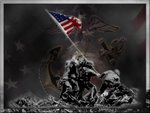A while back I read a couple of books that really had a profound influence on my life and the way that I saw the world. I noticed immediately that these two in particular had a synergy that I needed to explore:
This exploration led me to a pretty detailed outline of how to incorporate these ideas and tools into my daily life, my goal setting, and setting my priorities. The complete outline is below, and a download-able Word document is at the end. I welcome comments and discussion.
(I know that this will look like a lot to live up to, and I do not live up to these ideals every day. I am not trying to set myself up as some type of 'holier than thou', I just believe that this is a good framework , or starting point, if you will.)
Philosophy & Strategy for Living
I. Be Proactive - I will prioritize my time and efforts in order to make the most of my work and activity. I will focus on Prevention, Relationships, Planning and Recreation, in order to minimize the effects of Crises, Problems and Deadlines. By spending my time on issues of high importance and lower urgency, I will then have time for responding to issues of high urgency when they do appear.
A. I will seek Wisdom: I will train my eyes and ears to read and listen to materials that will bring positive changes in my personal relationships and a greater understanding of my fellow man. No longer will I bombard my mind with materials that feed my doubts and fears. I will choose my friends with care. I will listen to the counsel of wise men. I will be as a servant to others. He who serves the most, grows the fastest.
But if any of you lacks Wisdom, let him ask of God, who gives to all men generously and without reproach, and it will be given to him. James 1:5
B. I am a person of action: My future is immediate. I will grasp it with both hands and carry it with running feet. When faced with a choice of doing nothing, or doing something, I will always choose to act. I seize this moment. I choose now. I will walk with a spring in my step and a smile on my face. My own activity will create a wave of success for the people who follow me. I am a leader. I do not fear opinion, gossip, or the idle chatter of monkeys - all are the same. I do not fear failure, for it exists only in the mind of the person who quits.
Lord, remind me how brief my time on earth will be. Remind me that my days are numbered, and that my life is fleeing away. Psalm 39:4
C. I have a decided heart: Criticism, condemnation, and complaint come and go on the wasted breath of lesser beings. The power to control the direction of my future belongs to me. I am passionate about my vision for the future. My daily thoughts and actions, from morning until night, will work in a forward motion. I have a great dream to fulfill and I will never apologize for it. My prayers, my passions, my visions for the future are my very existence. All of my problems become smaller when I confront them. I have charted my course and I will not wait.
Blessed are those who trust in the Lord…They are like trees planted along a riverbank, with roots that reach deep into the water. Such trees are not bothered by the heat, nor worried by long months of drought. Their leaves stay green, and they go right on producing delicious fruit. Jeremiah 17:7 - 8
D. I will identify patterns from the past: I will look at and learn from things that I have done before. I will be able to anticipate situations, and respond to them with integrity. Learning from mistakes made by me and others will give me the power to direct the outcome of crises and obstacles.
I beseech you therefore, brethren, by the mercies of God that you present your bodies as a living sacrifice, holy, acceptable to God, which is your reasonable service. And do not be conformed to this world, but be transformed by the renewing of your mind, that you may prove that good and acceptable and perfect will of God. Romans 12: 1-2
II. Begin with the end in mind - I will start each day with a vision of what I intend to accomplish. The greater Purpose of my life will be its ruling principle. My life was planned for God's pleasure. I was formed for God's family. I was created to become like Christ. My life is shaped for serving God. I was made for a mission.
A. Learn - I will explore a variety of methods for achieving the end that I seek. Others have faced this situation, and I will discover how they handled it to best achieve my own success.
B. The buck stops here - I accept responsibility for my own past. To create my own future my thoughts will be constructive, never destructive. I will seek to associate with those that are working and striving to create positive changes in the world. I control my own thoughts and emotions. I am responsible for my success. The ability to make and keep promises is central to this success. I will keep my word, despite obstacles, opposition, and pain.
C. I will persist without exception - No longer will I live in a dimension of distraction, a state of chronic partial attention. I know the outcome I desire. I hold fast to my dreams. I stay the course and will not quit. Average people will accept exhaustion and compare themselves to other people. I will compare myself to my potential. I am not average, as I see exhaustion as a precursor to victory. I have faith in the certainty of my future. Faith is a sounder guide than reason, as faith has no limits. To see the future that I believe in come into being is the reward of this faith.
III. Put First Things First
A. Connect to your mission. Take time to organize my thoughts, clear my mind, and prepare to begin my day with mindfulness.
B. Review roles to be filled
C. Identify goals to be completed
D. Organize a schedule on a weekly basis
E. Exercise integrity in making decisions
That which we obtain too easily, we esteem too lightly. It is dearness only that gives everything its value. Heaven knows how to put a price on its goods. Thomas Paine
IV. Think win/win
A. Today I will choose to be happy. Happiness is not an emotional phantom, floating thither and yon, but a choice. It is the end result of specific thoughts and activities which actually bring about a chemical reaction in my body. This reaction is totally under my control. I will greet each day with cheerfulness, and people will be drawn to me because I have laughter in my heart. God has bestowed upon me many gifts, and for these I will be grateful. I will thank God every day for these blessings and ask him in prayer to look upon those less fortunate than myself. I possess a grateful spirit and will smile at everyone that I meet.
B. I will greet this day with a forgiving spirit. I will forgive even those who do not seek it. I know the difference between Right and Wrong. I know what is best for the future of my family, and I will work and sacrifice to attain it. Misguided opinion and unjust criticism will not alter my course, as I am called to a higher purpose. I will forgive myself to erase the doubts, fears and frustrations that have kept my past in the present. My history will no longer control my destiny.
C. I will examine my motives - am I serving others or serving myself? I will review and evaluate the consequences of my choices and actions every day, every moment. Service to others is the greatest gift, the investment of highest return.
V. Seek first to Understand, then to be Understood
A. I will listen more than I speak.
B. My speech will be right, thoughtful and conscientious.
C. I will take adequate time for contemplation and reflection.
D. I will avoid the state of "Continuous Partial Attention".
We are what we think,
All that we are arises with our thoughts
With our thoughts we make the world.
Speak or act with an impure mind
And trouble will follow you as the
Wheel follows the ox that draws the cart.
Dhammapada I
VI. Synergize All of my activities must be entered with a pure heart, and should all be coordinated to move toward accomplishing my ultimate goal.
A. Identify Strengths and Weaknesses.
B. Create an environment of trust and cooperation.
C. Practice mindfulness in all things.
VII. Sharpen the Saw Building time into my schedule for personal growth and improvement, for recreation, for study and fun will make my life fulfilling. The four dimensions of my human nature must be exercised regularly and consistently in wise and balanced ways. The measure of a man is the spiritual and emotional health of his family. I will stay focused, keep my word, and overcome obstacles despite opposition, pain and loss.
A. Physical: begin and maintain an exercise program. Look ahead, watch over my wife and family, provide Order, Mercy, and Justice under orders from God.
B. Spiritual: begin and maintain a schedule of bible study and prayer life. I am a Mentor for my family, a teaching heart models, explains, and trains. One of my most basic duties is to teach Life.
C. Mental: read and write, learn something new every day. Teach someone something new every day.
D. Social/Emotional: make contributions and have meaningful projects that are personally exciting and contribute to and bless the lives of others. The ability to make and keep promises is central to manhood, and provides a stabilizing force for everyone around me.
This is the Word Document:
the-seven-gifts-of-the-highly-efective-traveller.doc
Please Note: A lot of the preceding consists of direct quotes from the books mentioned above, as well as some quotes from other sources. They have been mixed and edited together, and I can't say for sure what comes from where sometimes. None of this is meant as a challenge to the copyright holders.







